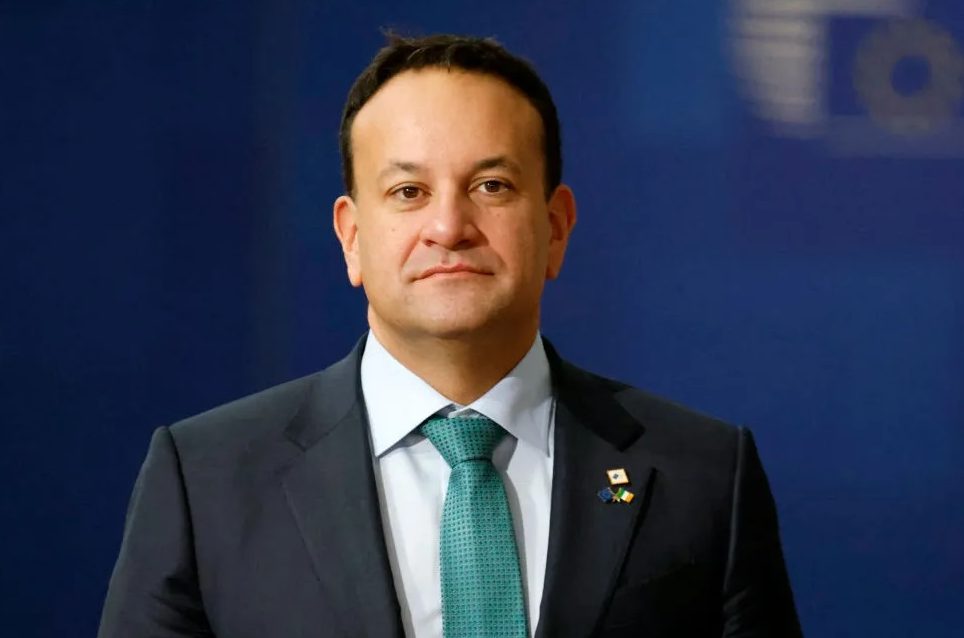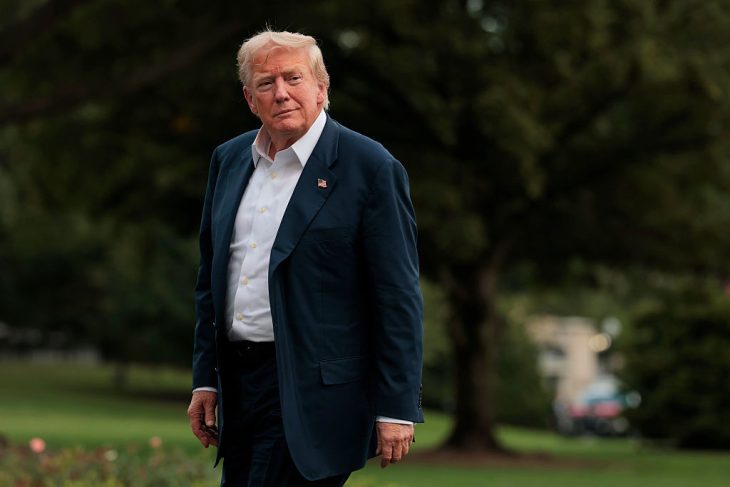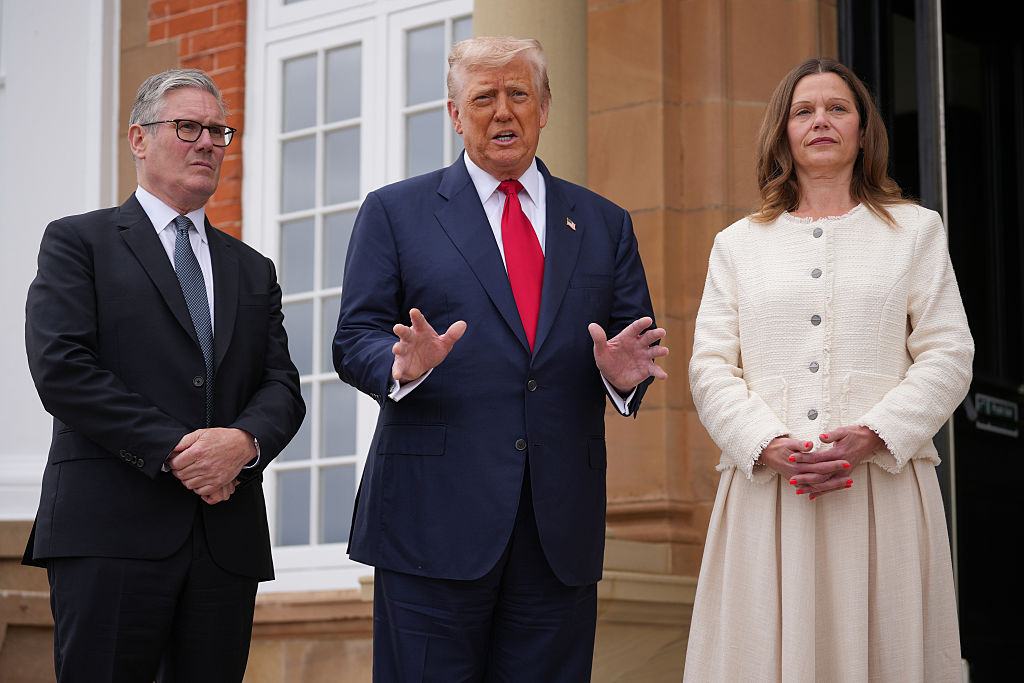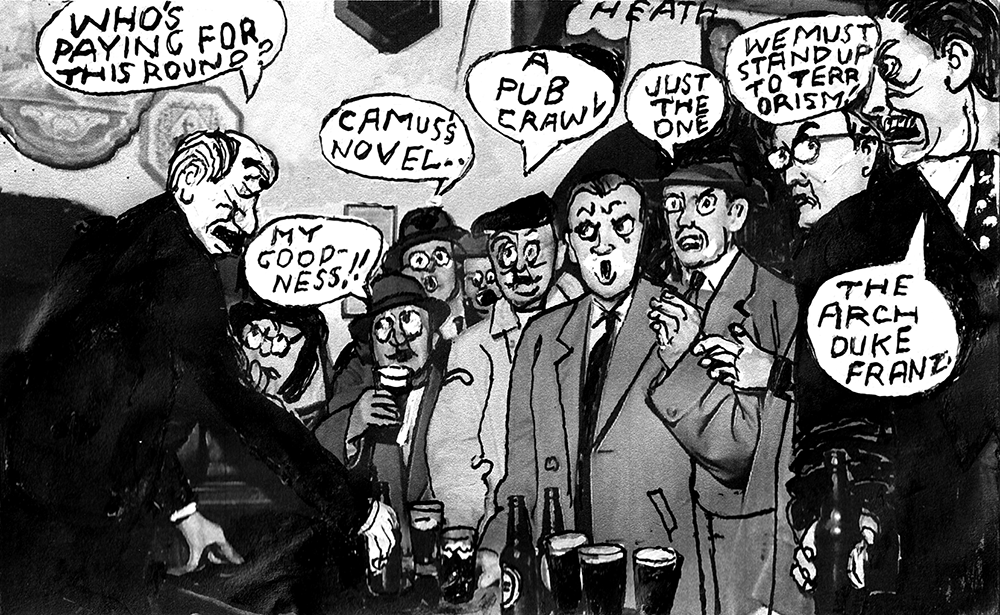Genuinely shocking political announcements are relatively rare in Ireland. It’s a small country, with an even smaller political and media base who all know and frequently socialize with each other.
This means that the whisper-streams between politicos and hacks usually ensure that what may come as a surprise to the general population is usually well flagged, or at least strongly suspected, by the elites in advance of any public pronouncement.
But yesterday’s announcement that Taoiseach Leo Varadkar was stepping down from his role seemed to genuinely catch people by surprise.
An emotional Varadkar cited “personal and political reasons” for his departure. Nobody knows what the personal reasons may entail, and in future Varadkar may well come to regret ringing that particular bell. But the political reasons undoubtedly stack up.
When Varadkar first became Taoiseach back in 2017, serving in that role until 2020, he was the youngest leader in the history of the state, as well as being the first gay man to hold the office, and was heralded by many as a welcome breath of fresh air into a body politic which often seemed stale and stultifyingly conformist. In a sign of how much the country has changed in the space of just one generation, nobody, least of all Varadkar himself, seemed particularly bothered by his sexuality.
Anyway, there were bigger fish to fry — he ascended to power during some of the most ferocious and rancorous periods of Brexit negotiations and even though he was often derided as “Tory Boy” by his critics, he was judged by many to have acquitted himself well.
That was largely down to the fact that he kept a hard line against the Tories and, as leader of the country most impacted by — and most fearful of — the ramifications of Brexit, that was key to his image.
He developed close ties with the EU negotiation team and proved to be a frequent stone in the shoe of the Brexit negotiators.
His return to high office in 2022 came during a rather less tumultuous period of negotiations and he seemed equally as adept at adopting a policy of détente and reconciliation with the UK, which culminated in the Windsor Framework deal on Northern Ireland, which was signed by Rishi Sunak and Ursula von der Leyen in 2023.
At that stage, he was a politician whose trajectory seemed determinedly upwards, to the point where he was reported to be considered for several high-profile roles with either the UN or the EU.
But he always had fierce detractors and there can be little doubt that there were times he seemed to revel in annoying the opposition, particularly the loose coalition of far-left politicians who openly despised him. His comments, for instance, that he was in charge of a party which would look after “the people who get up early in the morning” was seen as a deliberate slight against the unemployed and those on social welfare. But it only added to his popularity in some quarters.
He also seemed able to escape gaffes and missteps which would have felled a lesser man. For instance, his alleged involvement in leaking confidential documents to a friend caused a brief scandal and, then, as quickly as it appeared, it seemed to vanish again.
But as the Conservative Party are also learning to their cost, too much time in power inevitably breeds familiarity and with that came contempt and a certain sense of weariness. This is why Sinn Fein have been able to perform so well at various elections, simply by making their campaign slogan the rather nebulous “time for change.”
He also angered many of his party faithful with his full-throated support for Ireland’s ridiculously draconian plans to introduce new hate speech laws.
The Criminal Justice (Incitement to Violence or Hatred and Hate Offenses) Bill makes Scotland’s hate speech laws look positively louche by comparison. They insist that anyone who is found to be even in possession, either hard copy or electronically, of potentially “hateful content” could face five years in jail.
When a riot broke out in Dublin last November following a knife attack committed by a foreign national, Varadkar was quick to insist that he would speed up the process of transitioning the bill into concrete legislation, despite the fact that it was quickly established that the unrest was more to do with old fashioned criminality than any sinister plan.
But if there is to be one major contributing factor to yesterday’s surprising self-defenestration, that undoubtedly came with the disastrous government referendums on both the definition of the family and role of domestic carers in the home.
Voters rejected the family referendum by 67 percent, while the care referendum was demolished by 74 percent — leading to the worst results in a constitutional referendum suffered by any government in the history of the state.
A rueful Varadkar later conceded that the government had “failed to do enough” to convince voters, but by then the damage was already done.
Fortunately for him, he was able to promptly decamp to Washington for a week for the traditional St. Patrick’s day knees up with American politicians. The urbane Dublin native and former doctor will undoubtedly have seen that trip as a welcome respite from being so resoundingly spanked by a disgruntled electorate.
Inevitably, within hours of his announcement conspiracy theories began to swirl. But it seems likely that the reasons for his resignation were more mundane.
His personal popularity had taken a nose dive. The referendum sent shockwaves through his own party, with many of them blaming Varadkar for being far too blasé. He also had the headache that, in just eight weeks’ time, the country will once again go to the polls in both the European and Council elections.
Like his British counterpart, Varadkar faces utter destruction of a kind rarely witnessed in the council elections and it’s quite possible that he simply decided he didn’t have enough left in the tank to suffer any more bruises.
While foreign leaders including Sunak were quick to pay tribute, the reception from the Irish opposition parties was a rather more blunt “good riddance,” quickly followed by calls for a fresh general election.
That won’t happen, there is no constitutional imperative for such a course of action. So, some time between now and April, Fine Gael will choose a new leader — a poisoned chalice if ever there was one.
The usual suspects have been lined up as potential replacements, but it’s also possible that the more savvy campaigners will decide to sit this one out and let the newcomer take the rap.
Whether Varadkar will stay on as a parliamentarian remains an open question, but recent developments in his constituency office suggest this is unlikely.
In fact, at this stage, the only thing anyone can say with any degree of certainty is that we haven’t seen the last of Leo Varadkar, even if his next role in public life has yet to determined.
This article was originally published on The Spectator’s UK website.


























Leave a Reply